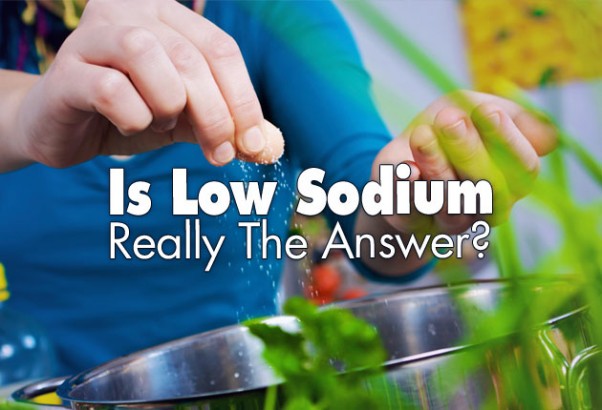New York Mayor Michael Bloomberg is gaining a lot of attention lately for spearheading health initiatives in the Big Apple.
Earlier this week, The New York Times said he "declared a victory against salt." It was a progress report on an initiative started back in 2010, when he challenged packaged food companies to reduce salt by 25%.
Obviously, Mayor Bloomberg is concerned about the well-being of New Yorkers and should be applauded for his efforts.
But is "salt" — in all its forms — really the culprit?
The truth is, it's only when processing steps in that salt becomes a problem.
In fact, 2012 Hallelujah Acres Health Minister reunion guest speaker Dr. David Brownstein, an MD in Michigan and one of America's foremost practitioners of holistic medicine, says reducing salt is not the answer; raising minerals is.
You see, "salt" as defined on the Standard American Diet (and in the packaged products Mayor Bloomberg mentions), is purified table salt consisting of more than 99.5% sodium chloride.
Refined salt is not the same as naturally occurring sea salt, which is also commercially available. Sea salt has not been stripped of all the other minerals that occur in harmony with sodium chloride, naturally.
"There is little data to support low-salt diets being effective at treating hypertension for the vast majority of people," Dr. Brownstein says. "Also, none of the studies (that vilify salt) looked at the use of unrefined sea salt, which contains many valuable vitamins and minerals such as magnesium and potassium, which are vital to maintaining normal blood pressure."
You read that right. The minerals in sea salt actually help to maintain normal blood pressure — NOT raise it!
Another purported benefit of a low-salt diet is a reduced risk of heart attacks or strokes. But in fact, Dr. Brownstein says, there is some compelling research which seems to indicate that low-salt diets may actually increase the likelihood of a cardiovascular event.
The answer? Avoid table salt but don't be afraid of using unrefined sea salt or Himalayan salt in proper moderation (all salt must be processed through the kidneys, so if you have kidney issues, talk to your doctor first).
Sea salt will supply the body with over 80 minerals that help to maintain the body's functions. And, according to Dr. Brownstein, "the addition of small amounts of unrefined salt to food or cooking will not adversely affect blood pressure or other health parameters in someone with normal kidney function."
And for those already battling blood pressure issues, Dr. Brownstein says don't automatically associate blood pressure with salt.
"Salt sensitivity is defined as an increase in blood pressure due to a high sodium intake," he says. "Not all hypertensive patients exhibit salt sensitivity."
Overall, Dr. Brownstein says, "it is refined salt (table salt, packaged food salt) that needs to be avoided – it is a toxic, dangerous substance that fails to provide the body with any benefit. Unrefined salt should be the salt of choice."
Do you love salt or can you do without it? Comment below!






